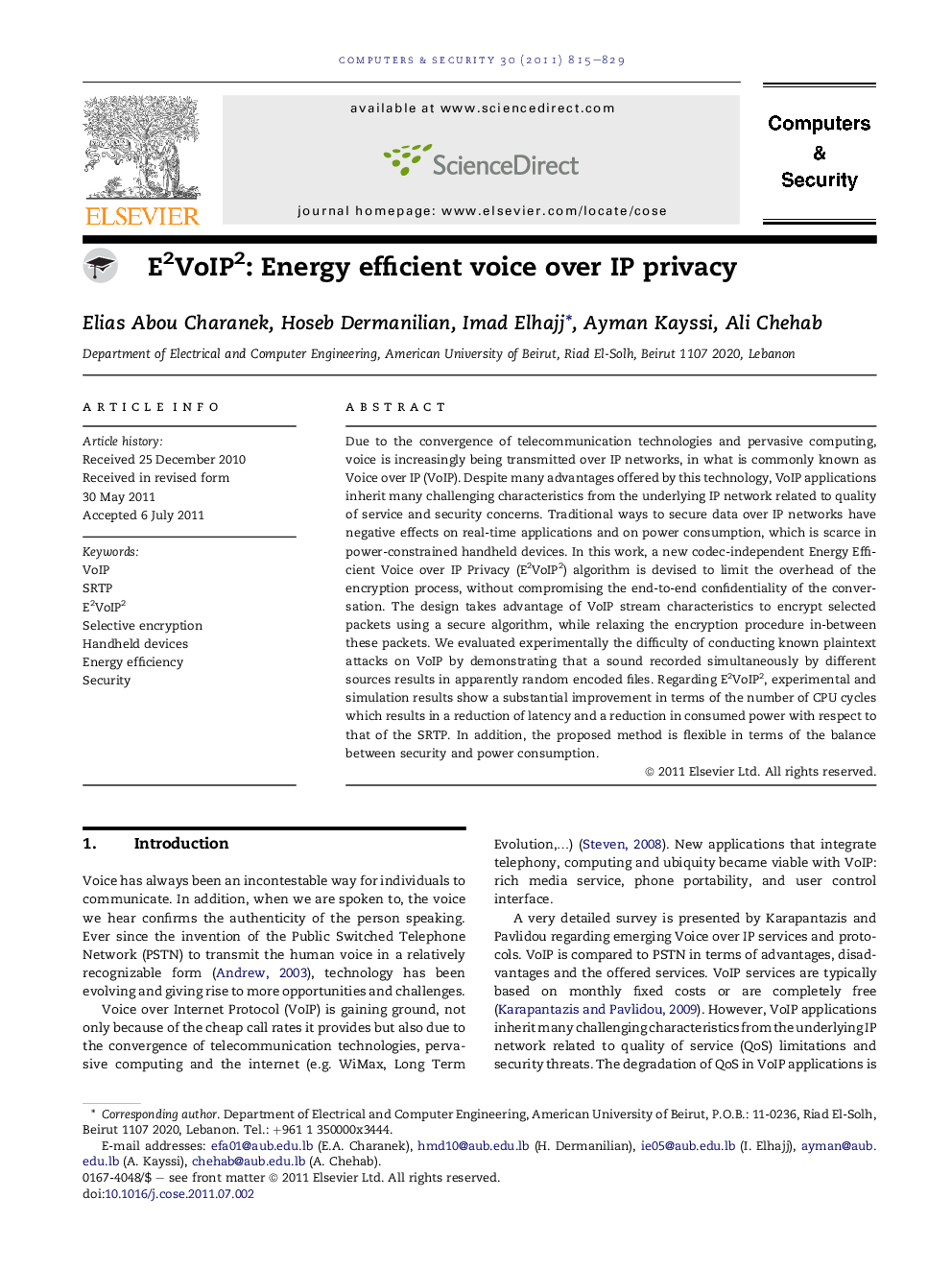| Article ID | Journal | Published Year | Pages | File Type |
|---|---|---|---|---|
| 454532 | Computers & Security | 2011 | 15 Pages |
Due to the convergence of telecommunication technologies and pervasive computing, voice is increasingly being transmitted over IP networks, in what is commonly known as Voice over IP (VoIP). Despite many advantages offered by this technology, VoIP applications inherit many challenging characteristics from the underlying IP network related to quality of service and security concerns. Traditional ways to secure data over IP networks have negative effects on real-time applications and on power consumption, which is scarce in power-constrained handheld devices. In this work, a new codec-independent Energy Efficient Voice over IP Privacy (E2VoIP2) algorithm is devised to limit the overhead of the encryption process, without compromising the end-to-end confidentiality of the conversation. The design takes advantage of VoIP stream characteristics to encrypt selected packets using a secure algorithm, while relaxing the encryption procedure in-between these packets. We evaluated experimentally the difficulty of conducting known plaintext attacks on VoIP by demonstrating that a sound recorded simultaneously by different sources results in apparently random encoded files. Regarding E2VoIP2, experimental and simulation results show a substantial improvement in terms of the number of CPU cycles which results in a reduction of latency and a reduction in consumed power with respect to that of the SRTP. In addition, the proposed method is flexible in terms of the balance between security and power consumption.
